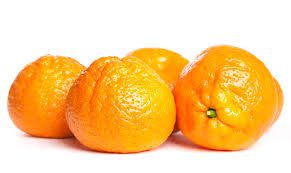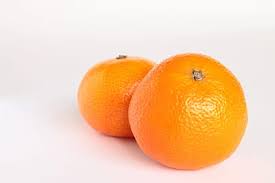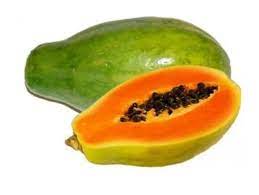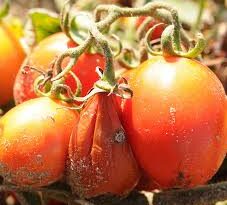Tangerine and Mandarin Rind: Economic Importance, Uses and By-Products
Tangerine and mandarin rinds are often discarded as waste, but they actually contain a variety of compounds that can be utilized to create a range of products and by-products.
The rinds of tangerines and mandarins are rich in essential oils, which can be extracted through a process called cold-pressing. These essential oils are used in perfumes, cosmetics, aromatherapy, and even for flavoring in food and beverages. Extracts from tangerine and mandarin rinds are used as natural flavorings and colorants in the food and beverage industry. They can add citrusy notes to various products without the need for artificial additives.
The rinds are a source of dietary fiber, which can be incorporated into various food products to enhance their nutritional content and promote digestive health. It is important to note that the extraction and processing of these products require careful consideration of safety, sustainability, and environmental impact. Additionally, regulations and guidelines might apply to the production and use of certain products derived from citrus rinds.
The Economic Importance and Uses of Tangerine and Mandarin Rind

Tangerine and mandarin rinds have several economic importance and uses due to their aromatic properties, flavor compounds, and potential health benefits.
Here are some of the key economic uses and benefits:
1. Food Flavoring and Aroma: Tangerine and mandarin rinds contain essential oils that are rich in aromatic compounds. These oils are used in the food and beverage industry to add flavor and aroma to various products, including baked goods, confections, desserts, sauces, and beverages. The distinct citrus scent and flavor make them popular choices for enhancing the taste of different foods.
2. Culinary Uses: The zest (outermost layer) of tangerine and mandarin rinds can be grated or minced and used as a culinary ingredient in both sweet and savory dishes. The zest contains essential oils that contain concentrated flavors and can elevate the taste of recipes, such as salads, marinades, dressings, and desserts.
3. Aromatherapy and Fragrance Industry: The essential oils extracted from tangerine and mandarin rinds are used in the production of aromatherapy products, scented candles, perfumes, colognes, and other fragranced items. These oils are known for their uplifting and refreshing properties, making them popular choices for creating a pleasant ambiance.
4. Cosmetics and Personal Care Products: Tangerine and mandarin essential oils are often incorporated into cosmetics and personal care products such as soaps, lotions, shampoos, and skincare formulations. They are valued for their natural fragrance and potential skin benefits.
5. Natural Cleaning Products: The aromatic properties and natural oils in tangerine and mandarin rinds make them useful ingredients in natural cleaning products. Their pleasant scent can mask odors while the oils can help break down greasy or sticky residues.
6. Health and Wellness: Tangerine and mandarin rinds contain bioactive compounds, including antioxidants and flavonoids, which are believed to have potential health benefits. These compounds may contribute to supporting the immune system, improving digestion, and promoting overall well-being. Extracts from these rinds might be used in dietary supplements or herbal preparations.
Read Also: A Guide to Growing and Caring for Lomandra Grass (Lomandra Spp)
7. Traditional Medicine: In some traditional medicine systems, tangerine and mandarin rinds are used for their perceived medicinal properties. These include treating digestive issues, colds, and various ailments. However, it’s important to note that scientific research on these potential benefits is ongoing.
8. Waste Reduction and Recycling: The leftover tangerine and mandarin rinds from the juicing or processing industry can be repurposed to create value-added products, such as extracts, oils, or dried rinds. This can help reduce waste and make use of byproducts that might otherwise be discarded.
9. Export and Trade: Countries that produce tangerines and mandarins can benefit economically from exporting not only the fruit itself but also its byproducts, such as essential oils and extracts. These products can be in high demand in various industries, contributing to international trade.
The Products and By-products That Can Be Derived From Tangerine and Mandarin Rind
Tangerine and mandarin rinds are often discarded as waste, but they actually contain a variety of compounds that can be utilized to create a range of products and by-products.
Here’s a list of potential products and by-products that can be derived from tangerine and mandarin rinds:
1. Essential Oils: The rinds of tangerines and mandarins are rich in essential oils, which can be extracted through a process called cold-pressing. These essential oils are used in perfumes, cosmetics, aromatherapy, and even for flavoring in food and beverages.
2. Citrus Peel Extracts: Extracts from tangerine and mandarin rinds are used as natural flavorings and colorants in the food and beverage industry. They can add citrusy notes to various products without the need for artificial additives.
3. Pectin: Pectin, a natural carbohydrate found in citrus peels, is used as a gelling agent in food production, particularly in making jams, jellies, and fruit preserves.
4. Bioactive Compounds: Tangerine and mandarin rinds contain bioactive compounds like flavonoids, polyphenols, and antioxidants. These compounds have potential health benefits and can be used as natural additives in functional foods, supplements, and pharmaceuticals.
5. Dietary Fiber: The rinds are a source of dietary fiber, which can be incorporated into various food products to enhance their nutritional content and promote digestive health.
6. Animal Feed: Dried and processed tangerine and mandarin rinds can be used as a component in animal feed. The dietary fiber and nutrients can contribute to the animals’ nutrition.
7. Natural Cleaners: The essential oils from tangerine and mandarin rinds have natural cleaning properties and a pleasant aroma. They can be used in the production of eco-friendly household cleaners.
Read Also: Monkeys: Species and Rare Interesting Facts
8. Cosmetic Ingredients: The essential oils and extracts from citrus rinds are used in the formulation of cosmetic products, including lotions, creams, soaps, and shampoos, for their fragrance and potential skin benefits.
9. Biofuel Production: Citrus peels contain sugars that can be fermented to produce biofuels, such as ethanol, through specialized processes.
10. Agricultural Applications: Compounds derived from citrus rinds can be used as natural pesticides or insect repellents for agricultural purposes.
11. Aromatherapy and Wellness Products: The pleasant scent of tangerine and mandarin essential oils makes them popular choices for aromatherapy and wellness products, such as candles, diffusers, and massage oils.
12. Flavor Enhancers: Dried and powdered citrus peels can be used as natural flavor enhancers in culinary applications, adding a tangy and aromatic element to dishes.
13. Compost and Fertilizer: The organic matter from tangerine and mandarin rinds can be composted and used as natural fertilizer to enrich soil with nutrients.
In conclusion, it is important to note that the extraction and processing of these products require careful consideration of safety, sustainability, and environmental impact. Additionally, regulations and guidelines might apply to the production and use of certain products derived from citrus rinds.
Read Also: JADAM Organic Farming: Enhancing Soil Health and Biodiversity









